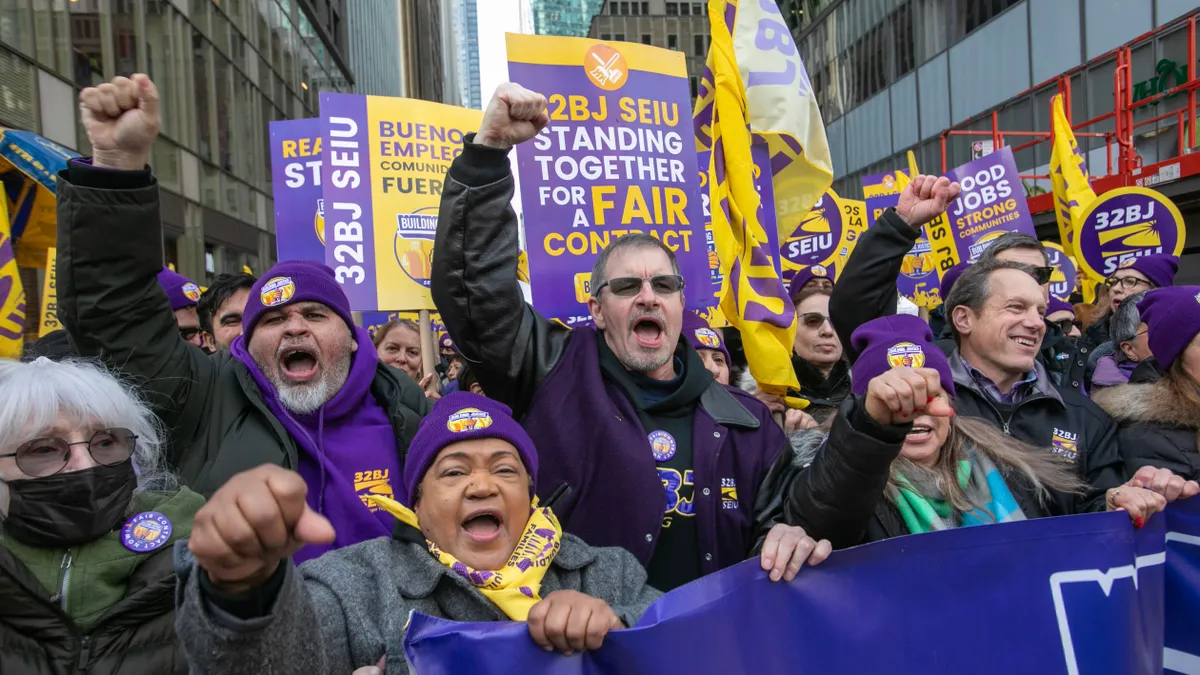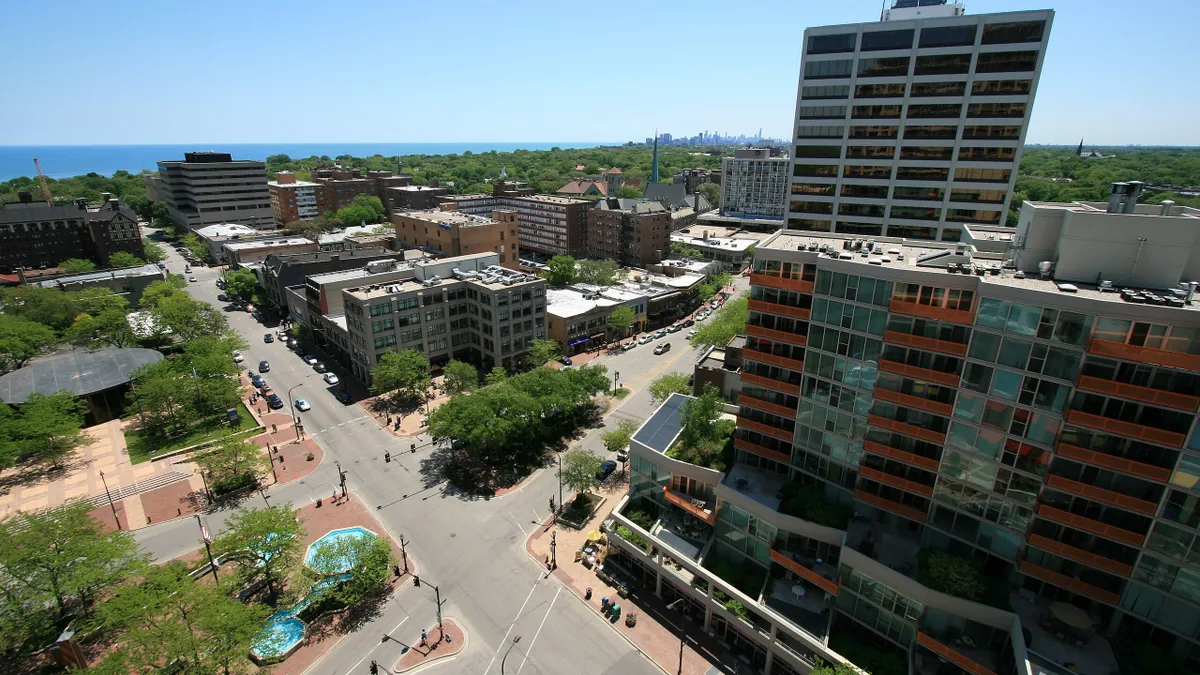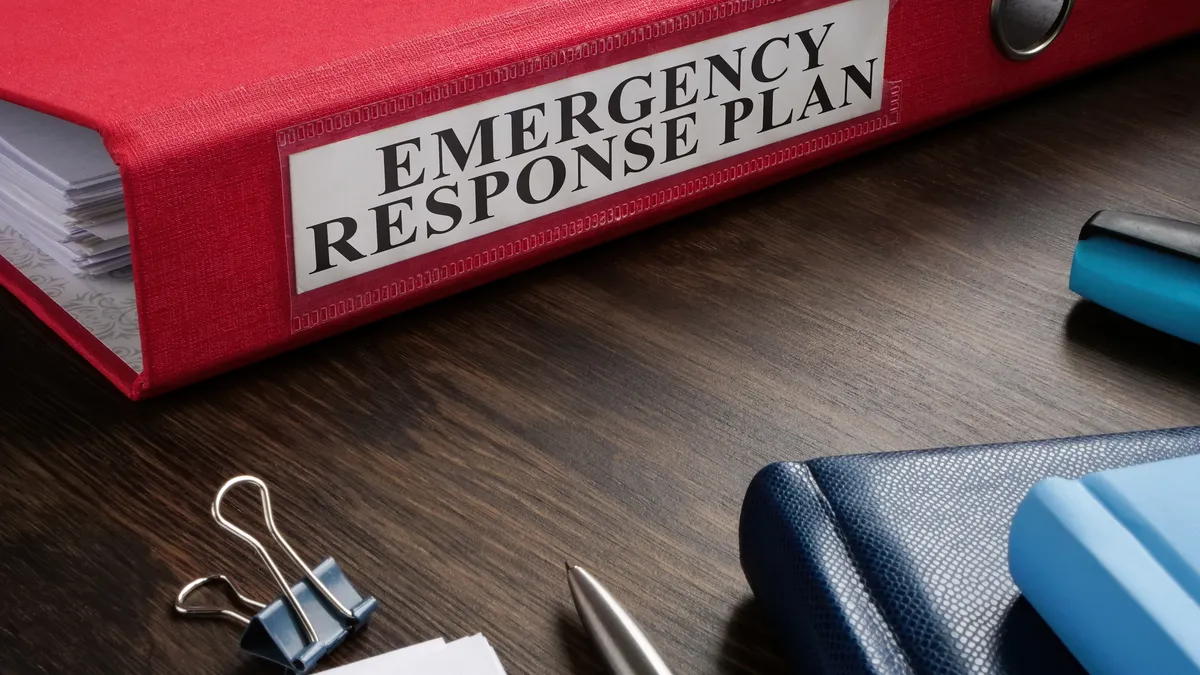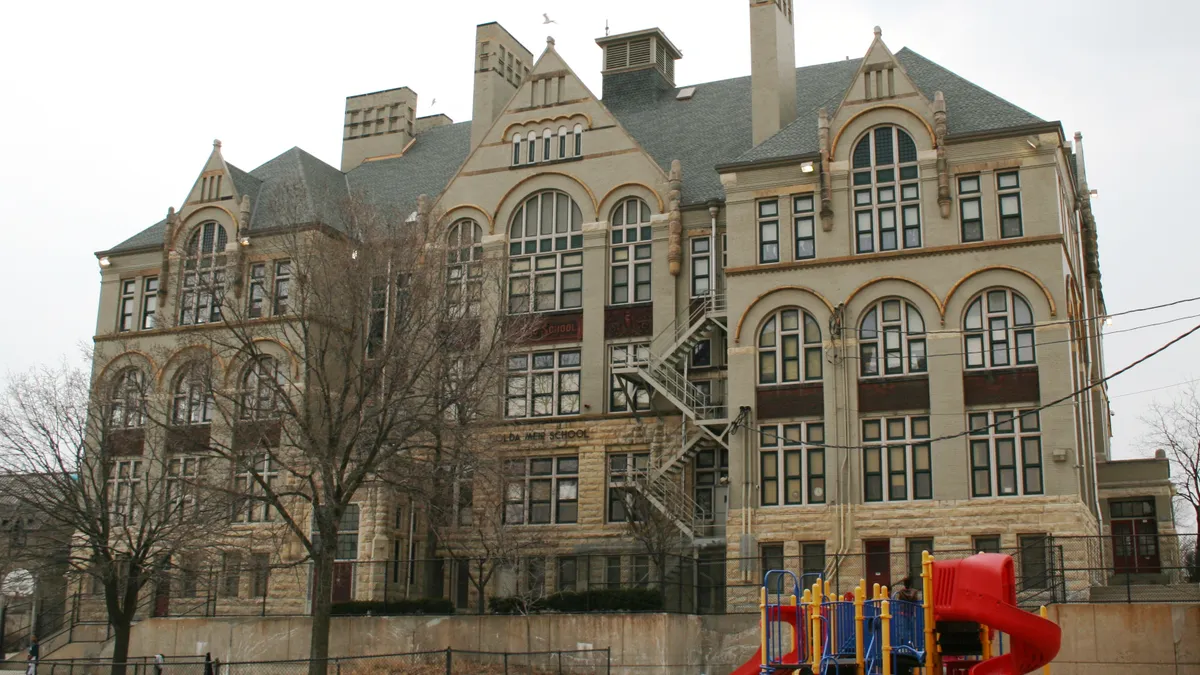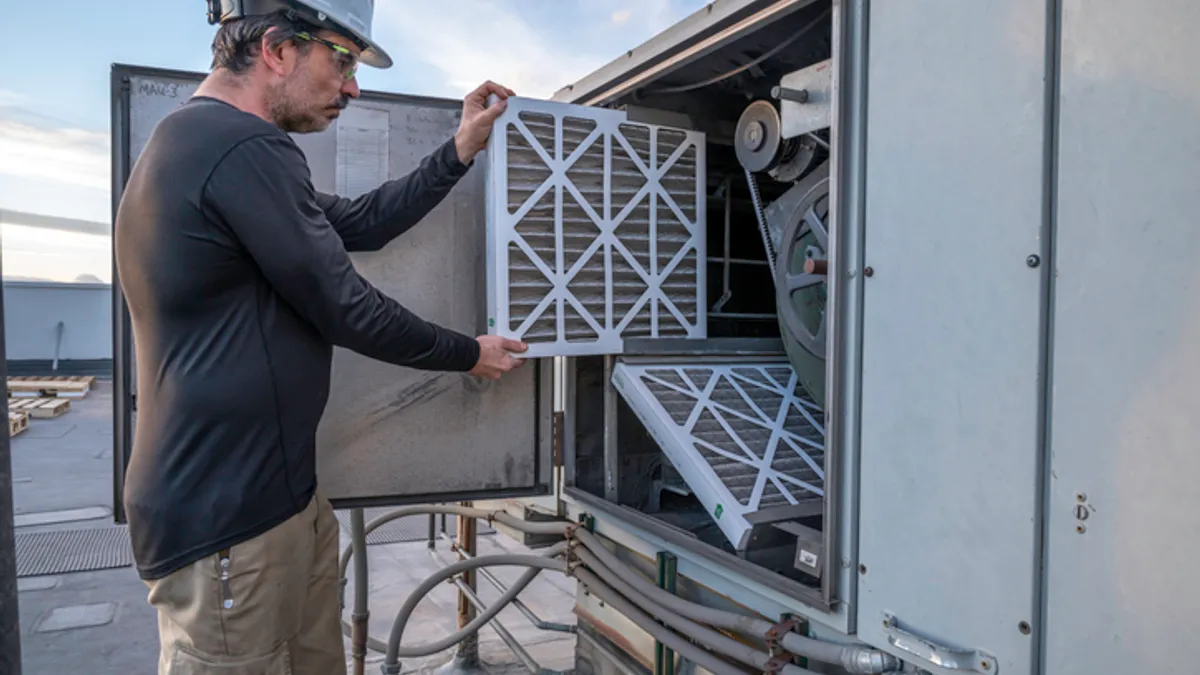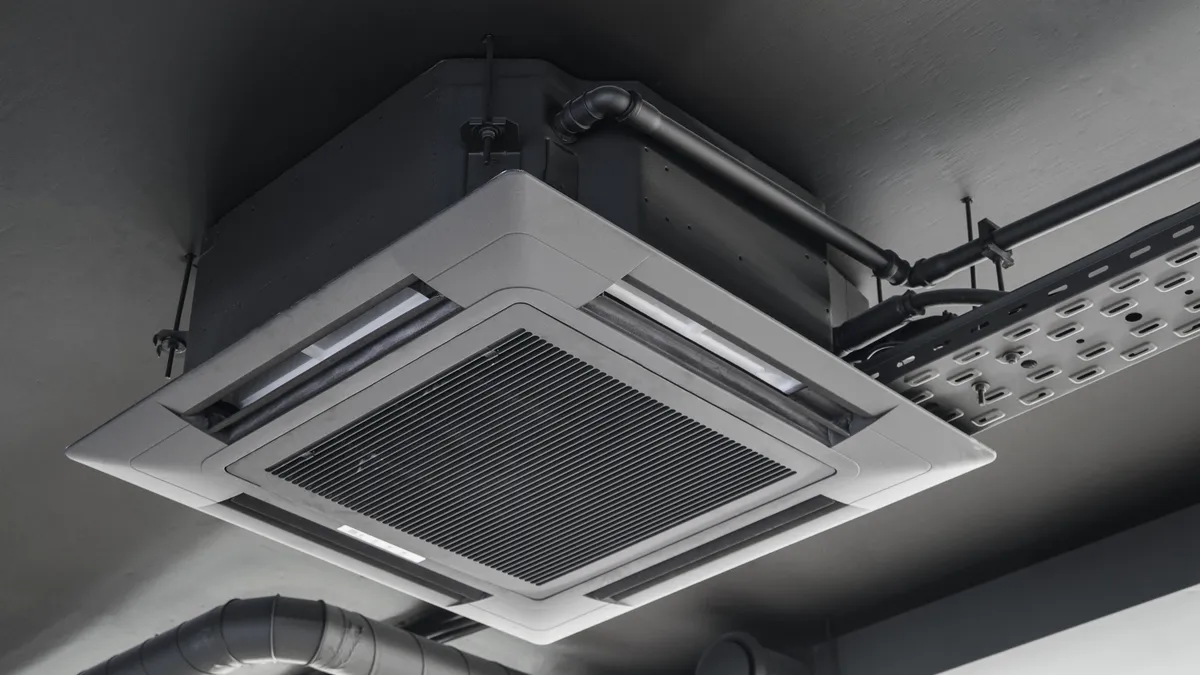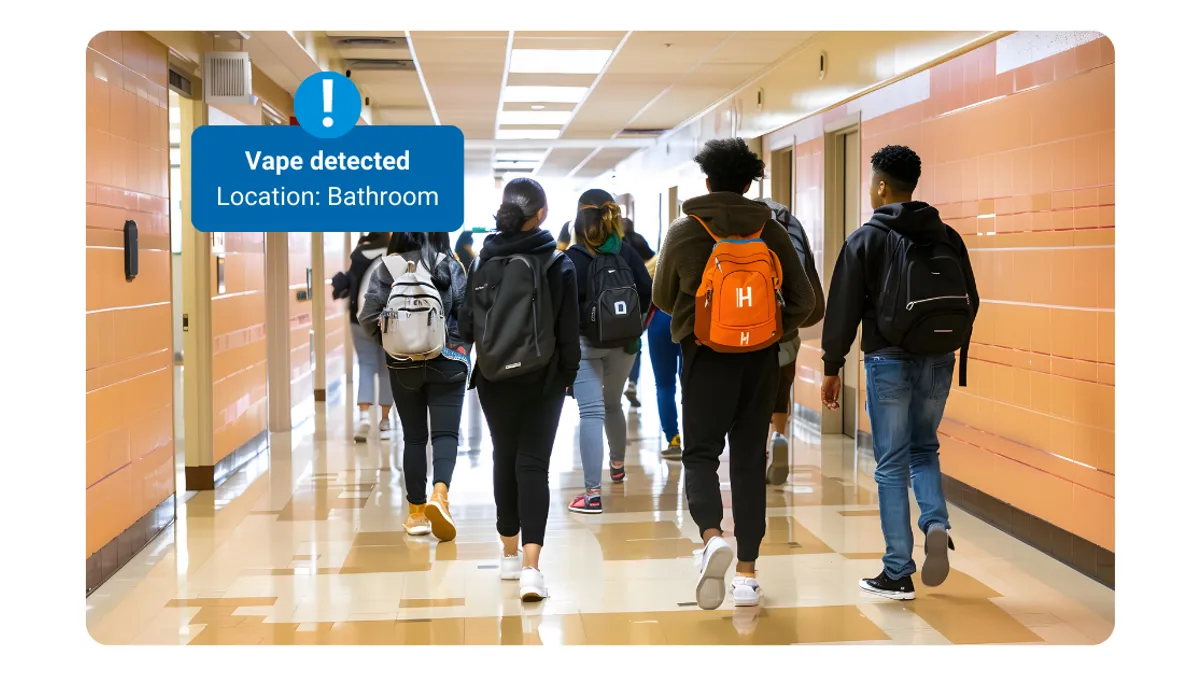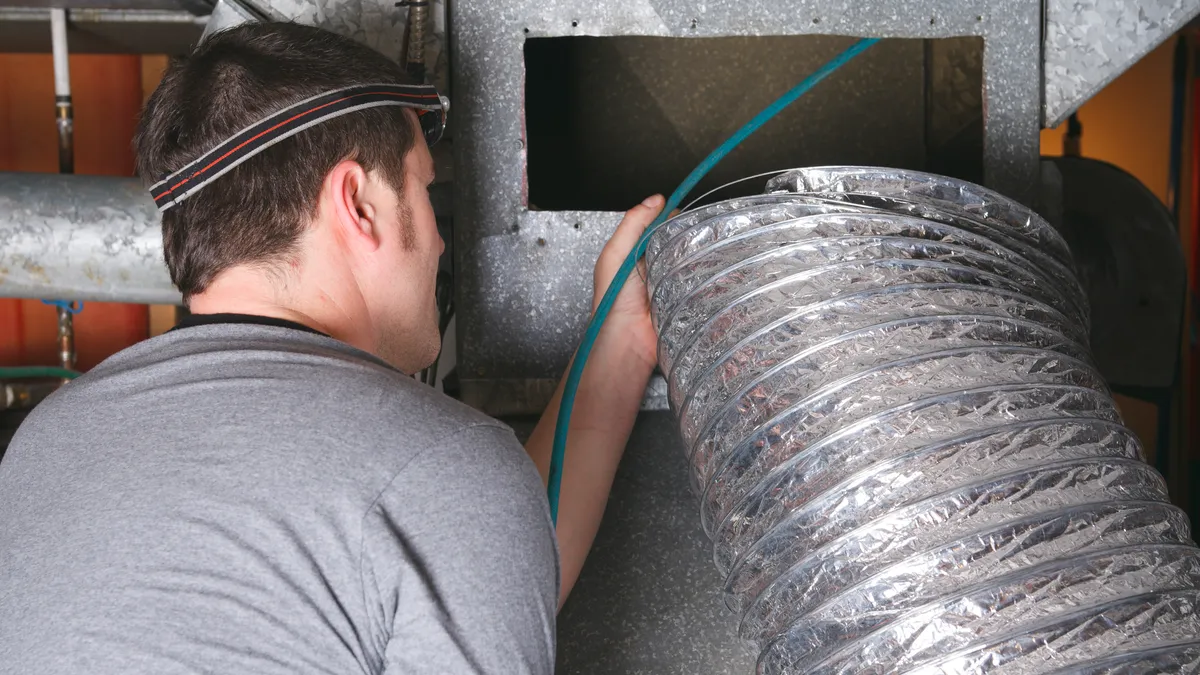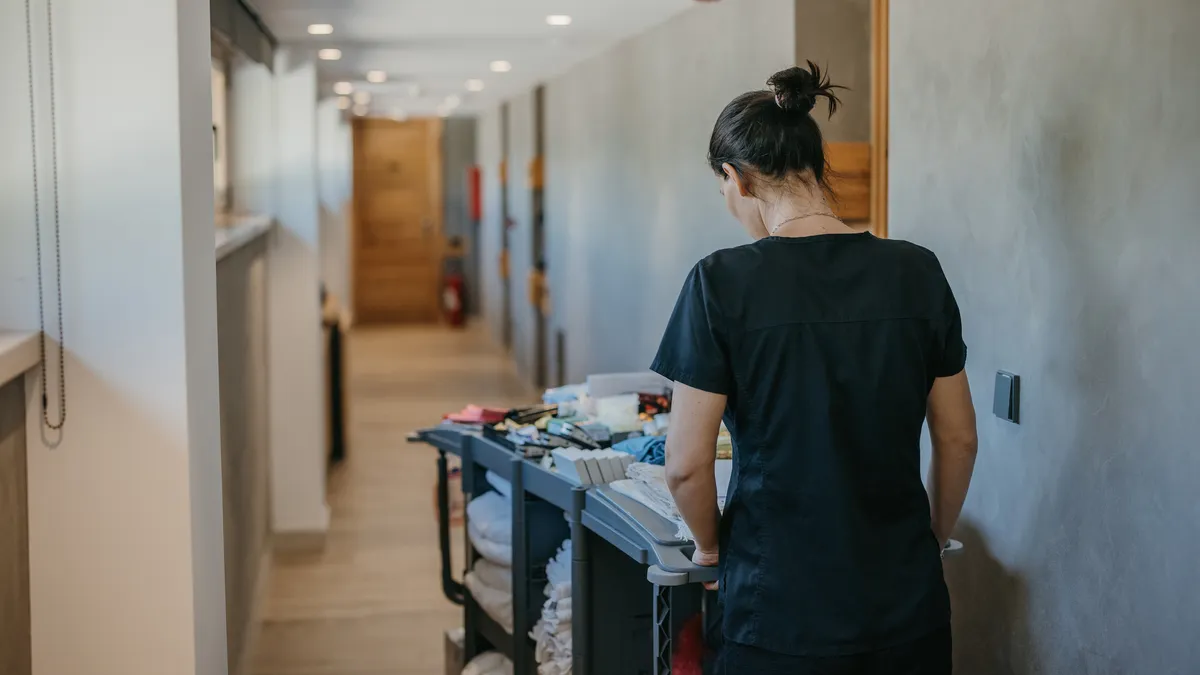Service Employees International Union Local 32BJ voted Dec. 20 to authorize a strike for 20,000 New York City building workers if their negotiations with the Realty Advisory Board on Labor Relations fail to result in a favorable contract by Dec. 31.
The 32BJ local of SEIU says it represents over 80,000 building service workers in New York City. A strike could affect 1,300 buildings in the city, according to its Dec. 21 news release, including tourist attractions like the Museum of Modern Art and Empire State Building, biotech labs, large commercial office buildings, New York University, Pace University and transportation hubs like Grand Central Station and Penn Station.
“The impact of a strike on the daily operations of these buildings would be significant; cleaning would not take place in these buildings,” 32BJ President Manny Pastreich said in an interview with Facilities Dive.
32BJ leaders oppose RAB contract provisions that include making members pay a portion of their health insurance premiums, lower wages and benefits for new hires, reduced labor protections, cuts to paid sick leave and vacation days and the elimination of overtime wages after eight hours, the press release said.
The local’s efforts have received support from major New York political leaders in recent days. U.S. Senate Majority Leader Chuck Schumer (D-N.Y.), New York Attorney General Letitia James, Mayor Eric Adams and Comptroller Brand Lander attended a rally for the workers Dec. 20 along with members of the AFL-CIO New York City Central Labor Council and United Auto Workers Region 9A members. They joined an estimated 10,000 32BJ SEIU members in the crowd, according to the press release.
Commercial cleaners, porters, handypersons and other members of the local bargaining committee gathered outside the Empire State Building Dec. 21 for a rally before clocking in for their night shift in the 102-story skyscraper. Other union members were rallying yesterday at 277 Park Ave., 1633 Broadway, 51 Madison Ave., 3 World Trade Center and other locations, a 32BJ SEIU spokesperson told Facilities Dive.
“Time is running out for the RAB to make a deal,” Pastreich said, noting that members are rallying outside buildings to demonstrate their readiness to strike.
The union is asking RAB to agree to a new contract that includes “fair wage increases, fully employer-paid health care for families, and no cuts to job protections after essential cleaners demonstrated their commitment and service” during the COVID-19 pandemic, the release said.
The Realty Advisory Board, which negotiates collective bargaining agreements on behalf of the city’s building owners and operators with unions that represent maintenance and operations employees, says that remote work trends and all-time-high building vacancy rates have pushed it to seek a collective bargaining agreement that takes into account the harsh economic conditions its members face.
“The RAB appreciates that union members have voted to strike, as is their legal right. But, with office vacancy rates at an all-time high of over 20% and with remote work in January 2024 a realistic alternative, the RAB stands ready to continue the hard work with the union to reach a new collective bargaining agreement that reflects the horrible economic conditions RAB members face,” Howard Rothschild, president of RAB, told Facilities Dive by email.
“The current labor agreements contain healthcare provisions and unsustainable work rules that do not exist in any other major city in the country nor in other 32BJ contracts outside New York City. We hope to reach a deal by the deadline that protects the future of the industry and our workforce,” Rothschild said.
Fewer workers are needed in the city’s buildings and more flexibility is required in deploying those who remain in current conditions, the RAB said. Vacancy rates have soared from 12.4% to 22.7% and net effective rents in Manhattan commercial real estate have fallen more than 26% since 2019, according to a fact sheet RAB provided Facilities Dive. The fact sheet states that the current labor agreements, reached in 2019, provided “generous wage and benefits packages for workers, including average annual wage and benefit increases of 2.93% each year.” It costs more than $106,000 a year in wages and benefits to employ a commercial building worker, the fact sheet noted.
The union’s press release says the existing contract “already allows for reduction in the workforce when vacancies increase, as has been demonstrated over the last three years.” The union chapter noted that employers have already removed 2,000 positions in response to these vacancies through the existing contract.
“Contract negotiations are ongoing, and the RAB has reaffirmed proposals calling for major givebacks,” Pastreich told Facilities Dive. The parties have scheduled four additional bargaining dates before year end, Pastreich said. “Our goal,” Pastreich said, “is to get a strong agreement. Ten thousand members marched up Midtown to send a clear message to the industry that they are ready to strike if an agreement is not reached that recognizes their essential role in the industry and allows them to live with dignity and support their families.”



